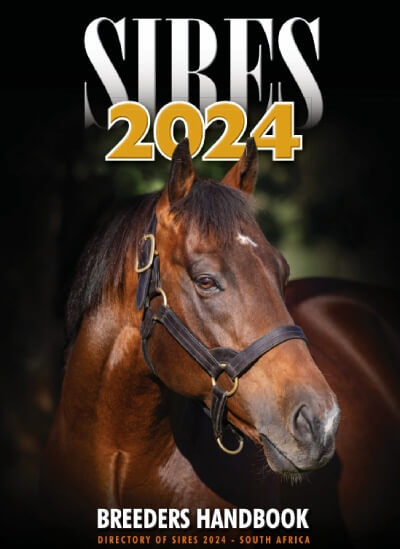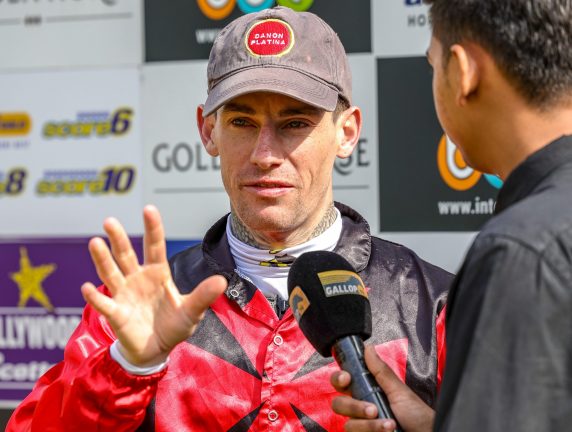Zimbabwe celebrates the 50th running of Africa’s oldest sponsored horse race Saturday, May 5th at Borrowdale Park, The Gr1 Castle Tankard. The Tankard has undergone some changes over the years, but it remains the most coveted race to win, the blue riband of Borrowdale Park.
Many years ago, in August 1959 to be precise, the Owners & Trainers Association wrote to the Stewards of the Mashonaland Turf Club, suggesting the introduction of sponsored races. Although this concept was flourishing in England, to date there had been no sponsored races in South Africa, or Rhodesia as it was then. A certain Mr. W Miller was tasked by the Board to investigate. George Yeatman, an F.B.C Sporting Commentator became a leading enthusiast, and a Sponsored Races Sub Committee was formed, with each member being instructed to approach large commercial concerns. Progress was slow, so the Stewards decided to go without a sponsor, and put up £1500, 00 stake for an Invitation Race over 6 furlongs. The reason being that at that time, running in Rhodesia was an imported horse, My King, a son of English sprint sire King’s Bench, belonging to Bunty & Bill Wakefield. This horse had being carrying all before him, and in 1960, had won 7 of his 10 starts impressively. Nobody knew how good he was, because the then regulations of the Jockey Club Of South Africa prohibited imported horses from racing in South Africa, but there was nothing to stop a South African trained horse competing at Borrowdale Park. To give the race international status, entries from Kenya were invited, with the Turf Club subsidizing the airfares. As a result two Kenyan runners were nominated. From South Africa, came a nomination from Howard Ginsberg, the 8 year old Djask gelding, Riza, who was already the winner of 21 races including the Jhb Merchants Handicap (twice) and the Durban Stewards Cup. The presence of Riza frightened away other entrants from South Africa, one telegraphic reply said “Unable to participate invitation race as have no animal which can compete with Riza weight for age basis”
In February 1960, the Rhodesian Breweries offered to sponsor the race, and the stake was increased to £2,100,00, and thus on Easter Monday, the Castle Tankard was born under its first name The Castle Brewery Invitation Stakes,
A field of seven runners lined up, and the result fully bore out the South African opinion of Riza, who beat My King by 4 ¾ lengths, local bred Fourth Edition filled the 3rd placing, and the Kenyan runner Herald III to 4th.
The Stewards decided to alter the conditions in 1961, to a weight for age race over a mile. This was angled to suit the locally owned 3 year old, Speed Fiend, a 4 time winner at 2yrs from 5 starts, and finishing 2nd in The Dingaan’s and 3rd in the Benoni Guineas. A disappointing response from South Africa resulted in only one entry. Heavy rain fell just prior to the race, and whilst Speed Fiend duly obliged by a 5 ½ length margin, the race was an anti climax, not only because of the weather but due to lack of South African support. A bold move by the Stewards in increasing the stake to £4,000.00 for 1962 and make the race a handicap over a mile. Great efforts were made to attract entrants from South Africa; these were successful and seven of the eventual 14 starters came from over the Limpopo. The famous Oppenheimer silks graced the Rhodesian turf, as Royal Highway was installed favourite at 5/4 on, but he could only finish 3rd to Second Month. Giving jockey Westwater his 2nd win in the series.
It was decided to change the distance in 1963 to a mile and a quarter, the thinking behind this being that the major handicaps at the time in South Africa, the Durban July & Cape Metropolitan were over that trip. Funnily enough this did not attract the support hoped for, and only 3 starters came from South Africa. Again run on Easter Monday, and again a heavy downpour of rain saw the bottom weighted local runner Basilica win by the shortest of heads.
More changes were made in 1964, twice heavy rain had fallen prior to or during the running, and also Easter Monday is a moveable date. It was decided to try and fix a permanent date for the race at a time when the leading Johannesburg horses had not yet travelled to Durban for the winter season, and at a time on which the weather was unlikely to interfere with the success of the race, therefore the Saturday closest to May 1st annually was fixed, and to revert to a distance of one mile. This did the trick, and 19 horses accepted, 9 travelling from South Africa. The race proved a triumph for the SA contingent, as they filled the first 3 spots, the best a local runner could do was 4th.
Following on the heady success of 1964, no alterations to conditions were made. Slightly disappointing was that only 5 of the eleven nominations were South African. But thus race went down in Tankard annals as the year of the FALSE START. When called in to line, the field proved obstreperous, the chief culprit being Hay Trop with Michael Roberts aboard. There were a dozen or more walk ups, spoilt by horses rushing the tapes at the critical moment. Eventually, a favourite patient starter thought he saw a means of getting the field away and pressed the lever. He immediately realized it had not been a fair start for all, and signaled the red flag to the advanced flag man. Shouting, he ran towards the horses waving the white flag, and half the field that saw him started stopping. The other riders, too busy jockeying for position on the first bend, did not see him, and half the field continued to race the full distance. Eventually, all the horses lined up again, and the race proper took place. None of the horses that filled the first 4 spots had taken part in the false run race, and Rose Knight beat Hay Trop, giving trainer Howard Ginsberg his second Tankard victory. Public opinion was that despite a false start, these two would have fought out the finish.
For some strange logic, believed to be because the Mashonaland Turf Club had recently commissioned a straight seven furlong course, the only one in Southern Africa, it was decided to run the 1966 race over this trip. The decision did not have a very noticeable effect on runners, 13 lined up of which 5 were South African. This time the locals prevailed, and the previous year’s winner Rose Knight could only manage 4th place.
Following the 1966 race, the sponsors called a very high powered meeting to consider the future of the Castle Tankard, which had by now established itself as one of Southern Africa’s premier races. They not only invited representatives of the Stewards, but also officials of the Turf Club and members of the sporting Press. There was unanimous agreement that it was high time a definite distance was fixed for this race. There was some discussion of what this distance should be, but after hearing various points of view it was decided to revert to the classic distance of ten furlongs. Two other very important decisions were also taken for 1967. It was decided to increase the stake money to £5, 000, and 00 and instead of an invitation race to make it an open race for which anyone could enter. A large entry was received, few of whom were weighted out by the handicapper and eventually 18 horses faced the starter on the 29th April. Mr. Labistour sent up Dr John, who was set to carry top weight and was having his last run before retiring to stud. Looking a picture in the paddock, and partnered by jockey Trevor Lange ( now father in law to Lucky Houdalakis of JJ The Jet Plane fame), Borrowdale provided the ideal course for the horse’s swan song, he relished the long run in, his lengthy stride eating up the turf and on to win a fast run race.
The Castle Tankard was now firmly established, not only on the local racing calendar but as an important feature in the South African annual programme. For many years it held its special slot in the calendar, early May, but in 1980 the running was scheduled for June. This was the year Rhodesia became Zimbabwe. For the past 15 years, Rhodesia had been a pariah state, undergoing a bush war, placed under economic sanctions and probably, at best, an embarrassment to its Southern neighbor, and as a result fewer and fewer horses from south of the border were interested or prepared to make the trek to Rhodesia. Probably still imprinted in memory was the ill fated trip of Bold Land (ARG), owned by Jean & Laurie Jaffee to compete in the J V Samuels sprint. The horse box missed the convoy, and the driver decided to go it alone with disastrous consequence. They were ambushed and shot at by guerillas just outside what was then Fort Victoria, the driver badly wounded and the horse in such a bad state he had to be put down.
In order to encourage bigger fields and level the playing field, the move to June allowed the 3 year olds to contest the Triple Crown, and still take part in the Tankard on favourable terms, should they so wish. And so, in 1986 local racegoers cheered the 3 year old Triple Crown winner, Matchwinner to victory in the Castle Tankard – the first three year old to win this race.
And therein lies a story. Armitage has bred 8 Tankard winners, it is unlikely anyone will ever match this achievement, Moor owned Matchwinner and shared honours in 1991, but is best known as the breeder of the mighty Ipi Tombe, and Sharon Paterson is the only lady trainer to train more than 2 Tankard winners.
Time has moved on, and the Tankard has moved its slot back to the time honoured tradition of May. To celebrate their golden anniversary, the sponsors are going all out to make this a race and an occasion to remember, and hoping that a purse of $50 000, 00 will attract a healthy participation from across the border by the time nominations close on April 16th. Tied in with the Zimbabwe Yearling Sales, it is going to be a week of festivity and Zimbabwean hospitality abounding.








